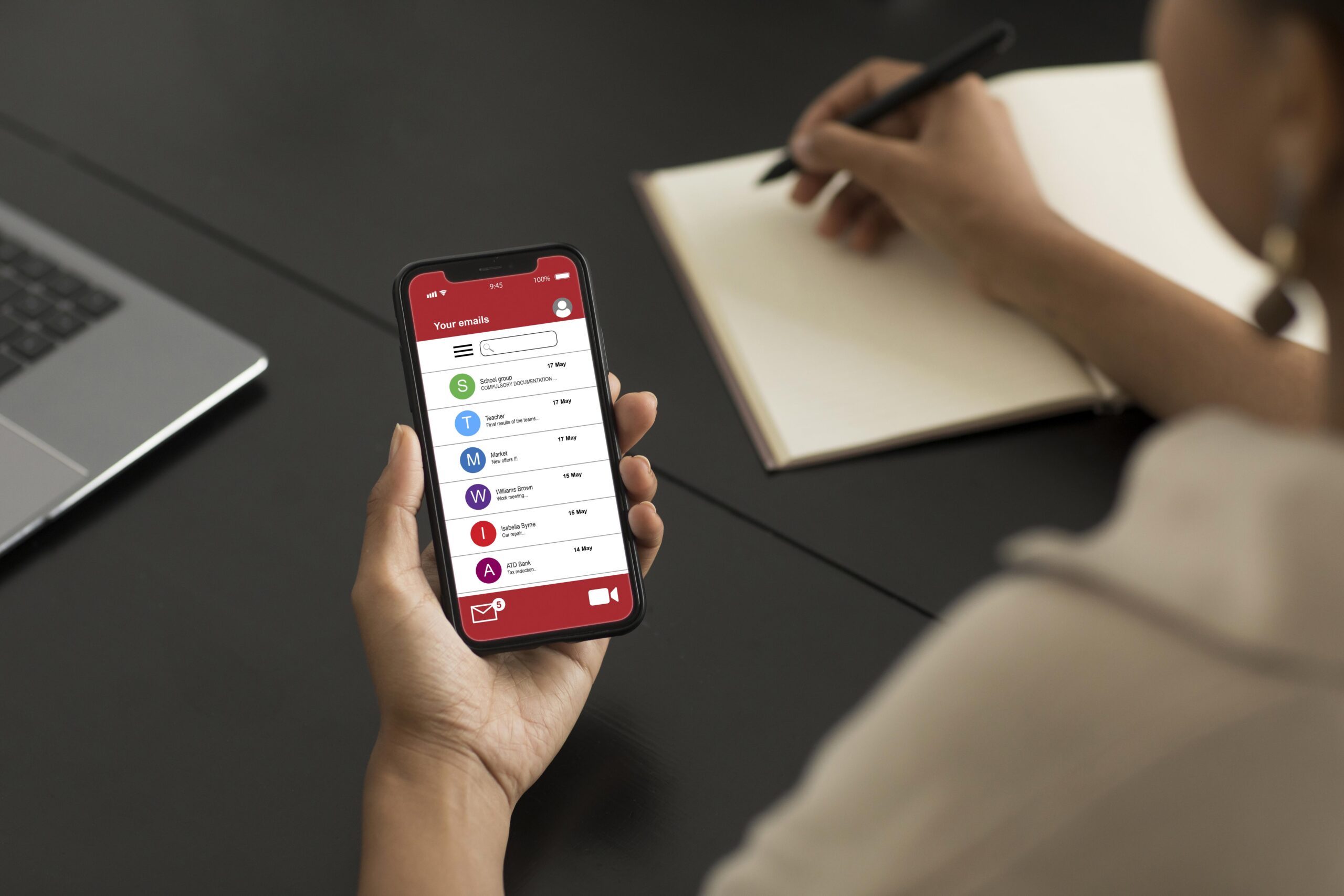- admin
- July 24, 2023
- No Comments

Mobile apps are a vital part of customer service in today’s digital world. They can help you connect with your customers, provide them with valuable information, and offer them convenient solutions. But with so many apps available, how can you stand out from the crowd and deliver the best customer experience?
One option is to create a composite mobile app. A composite mobile app is an app that combines different products or services from your company into one platform. For example, a travel app that lets customers book flights, hotels, car rentals, and tours from different providers.
Composite mobile apps are becoming more popular in the customer service field, as they can offer many benefits for both customers and businesses. But they also come with some challenges that need to be considered. In this blog post, we will explore the pros and cons of composite mobile apps for customer service, and help you decide if they are right for your business.
The Benefits of Composite Mobile Apps for Customer Service
Here are some of the benefits that composite mobile apps can bring to your customer service:
- Ease and Variety: Composite mobile apps can give your customers the freedom to choose from different products or services that suit their needs, all from one app. This can save them time and hassle, as they don’t have to switch between different apps or websites. It can also increase their satisfaction and trust, as they can find everything they need in one place.
- Enhance Customer Loyalty: Composite mobile apps can keep your customers hooked and loyal to your brand, by providing them with a one-stop solution for their needs. This can make them feel valued and appreciated, as they can access personalized offers, rewards, and recommendations within the app. It can also make them more likely to refer your app to others, as they can share their positive experiences with their friends and family.
- Cross-Selling Opportunities: Composite mobile apps can help you grow your income streams, by cross-selling and upselling more products or services to your customers, based on their preferences and behavior. You can use data analytics and artificial intelligence to understand your customers’ needs and interests, and offer them relevant suggestions within the app. This can increase your sales and revenue, as well as your customer lifetime value.
- Streamlined Maintenance: Composite mobile apps can reduce app clutter and complexity, by merging multiple apps into one platform. This can save you money and time, as you don’t have to maintain separate apps for different products or services. It can also improve your app performance and security, as you can update and fix issues more easily and quickly.

The Drawbacks of Composite Mobile Apps for Customer Service
Here are some of the drawbacks that composite mobile apps can pose to your customer service:
- Complex User Experience: Composite mobile apps may confuse or overwhelm your customers, especially if they are not familiar with your products or services, or if they have different expectations from each section of the app. They may have difficulty finding what they want or navigating through different sections smoothly. This can affect their user experience and satisfaction, as well as their retention and loyalty.
- Brand Identity Effect: Composite mobile apps may weaken or blur the distinct identity and value proposition of each product or service that you offer, making it less clear for your customers to associate them with your brand. They may also create confusion or conflict between different products or services within the app, especially if they have different features, prices, or quality standards. This can affect your brand image and reputation, as well as your customer trust and loyalty.
- Technical Problems & Bugs: Composite mobile apps may encounter technical problems or bugs when they have to work with various systems or platforms that support different products or services within the app. They may also face compatibility issues with different devices or operating systems that your customers use. This can affect your app functionality and reliability, as well as your customer satisfaction and loyalty.
- Resource Requirements: Composite mobile apps may require more customer service resources and training, as you have to deal with questions and complaints related to different products or services within the app. You may also have to coordinate with different teams or departments that are responsible for different products or services within the app. This can increase your operational costs and complexity, as well as your customer service quality and consistency.

The Tech Conundrum of a composite mobile app
The Technical Advantages of Composite Mobile Apps for Development and Maintenance
Here are some of the technical advantages that composite mobile apps can offer to developers and maintainers:
- Code Re-usability: Composite mobile apps can allow developers to reuse the same code for different products or services within the app, as well as for different platforms or devices. This can save time and effort, as well as ensure consistency and quality across the app.
- Modularity: Composite mobile apps can enable developers to divide the app into smaller modules or components, each with its own functionality and interface. This can make the app easier to develop, test, debug, and update, as well as allow for more flexibility and customization.
- Scalability: Composite mobile apps can support developers to scale the app according to the changing needs and demands of the customers, products, or services. They can add or remove features, sections, or integrations without affecting the whole app, as well as handle increased traffic or data efficiently.
The Technical Challenges of Composite Mobile Apps for Development and Maintenance
Here are some of the technical challenges that composite mobile apps can pose to developers and maintainers:
- Complexity: Composite mobile apps can increase the complexity of the app development and maintenance process, as they involve multiple products or services, systems or platforms, devices or operating systems, and teams or departments. They may require more planning, coordination, communication, and documentation to ensure a smooth workflow.
- Security: Composite mobile apps can expose the app to more security risks and threats, as they have to deal with more data and transactions from different sources and destinations. They may require more encryption, authentication, authorization, and monitoring to protect the app from unauthorized access or malicious attacks.
- Performance: Composite mobile apps can affect the performance of the app, as they have to load and run multiple features, sections, or integrations within the same app. They may require more optimization, caching, compression, and synchronization to ensure a fast and smooth user experience.

How to Decide If Composite Mobile Apps Are Right for Your Business
As you can see, composite mobile apps have both pros and cons for customer service. To decide if they are right for your business, you need to consider your unique customer base and organizational goals.
Here are some questions to ask yourself before creating a composite mobile app:
- What are the needs and preferences of your target customers? Do they value convenience and choice over simplicity and clarity? Do they use multiple products or services from your company regularly? Do they trust your brand enough to use a composite app?
- What are the goals and objectives of your business? Do you want to increase your customer loyalty and retention? Do you want to cross-sell and upsell more products or services? Do you want to streamline your app maintenance and performance?
- What are the resources and capabilities of your business? Do you have the budget and time to create and maintain a composite app? Do you have the technical and customer service expertise to handle the integration and support of a composite app? Do you have the data and analytics tools to optimize your composite app?
By answering these questions, you can weigh the benefits and drawbacks of composite mobile apps for your customer service, and make an informed decision.
Conclusion
Composite mobile apps are a new trend in the customer service field, as they can offer convenience, choice, loyalty, and revenue opportunities for both customers and businesses. However, they also come with challenges such as user experience, brand identity, technical issues, and resource demands.
Before creating a composite mobile app, you need to consider your unique customer base and organizational goals, and evaluate the pros and cons of composite mobile apps for your customer service.
For more details reach the TecRivuelt team at sales@tecrivulet.com or visit our Contact Us page to drop a line to us.
Categories
- Branding(2)
- Business(2)
- Log in(3)
- Privacy(3)
- Technology(5)
- Tips(4)
- Uncategorized(13)
